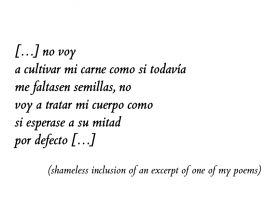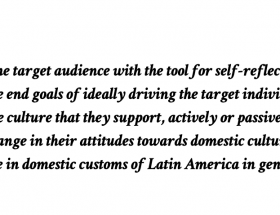Resisting the pressure to conform to prescribed notions of “happiness” and “success” is no simple feat when a combination of cultural forces persistently push us to appear happy at all times. In a world increasingly defined by social media and saturated with superficial perfection, we have caught ourselves in a series of harmful deceptions. In this new world, if you’re not happy, you’re not really living. If you don’t have everything figured out, you’re not worthy of recognition. If you’re struggling, you keep going and you get over it.
In this world, we make ourselves less productive, less healthy, and less whole.
Ignoring and suppressing sadness in favor of fake images of happiness has become a popular way to deal with the pressure. In an article for The Independent, Kashmira Gander highlighted how the social media world can make people feel as though everyone lives in an eternal state of euphoria, even when they know constant happiness is a hoax. Margarita Tartakovsky, M.S., has noted how people keep sadness to themselves and from themselves because it is seen as an emotion to avoid wherever possible. The message people are receiving is that it is not okay to not be okay. However, brushing sadness aside can lead to its expression in unhealthy ways. Tartakovsky describes sadness as a valuable, vital emotion that can serve as a guiding force and turn into an opportunity for us to grow and change.
It is an emotion signaling that something in our lives is out of balance and needs to be addressed.
Susan David, a psychologist who gave a Ted Talk entitled “The gift and power of emotional courage” in 2018, has suggested the way we deal with our inner world drives how we live, love, and lead. Stuck in an unkind tyranny of positivity, she thinks the radical acceptance of all our emotions can become the cornerstone to resilience and authentic happiness. That means we need to read each of our emotions as data and learn how to compassionately and courageously be at peace with them. Tough emotions are part of our contract with life – pushing them aside takes us nowhere. Instead of repressing them, we need to accept the spectrum of emotions defining our humanity. Instead of feeling bad for feeling bad, we need to understand that “negative” emotions are just as important as “positive” ones. Social psychologist Brock Bastian has argued that some pain is necessary to increase experiences of pleasure and build psychological resilience. Pain can increase our presence in life, focus our minds, create meaning, and give things a sense of purpose. It is an essential part of living a full life.
In an effort to resist the cultural bias towards valuing positivity and happiness above all else, we should recognize that sadness and pain refine us. These emotions give us perspective. Instead of destroying ourselves in the search for an unattainable state of happiness, we should strive for a life of meaning. We should be looking for wholeness; taking care of our sense of purpose, our connection with others, and of our spirituality leads to a fulfilled life. Practicing self-care and helping others. Confronting our emotions and finding peace with them.
Cultivating self-awareness and living a life of authenticity. These actions can help us move away from the version of the world obsessed with perfection and towards a version of the world concerned with holistic health and emotional agility. The pursuit of wholeness is much more promising than the pursuit of elusive happiness.
art by: Allegra Tenenbaum




